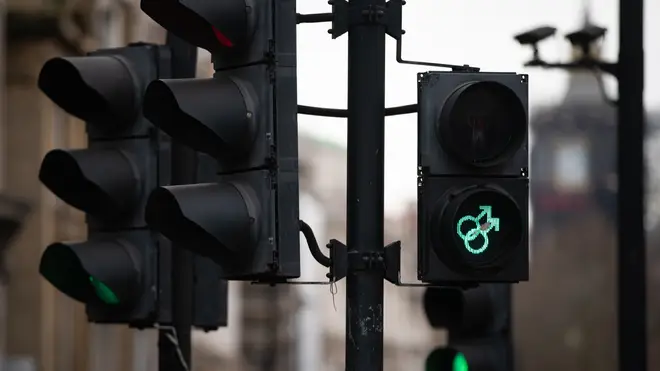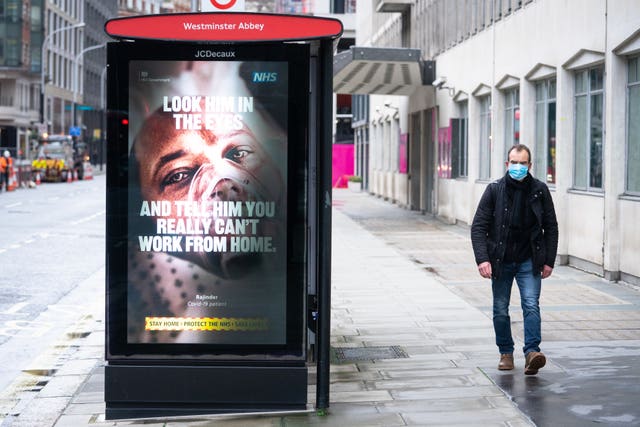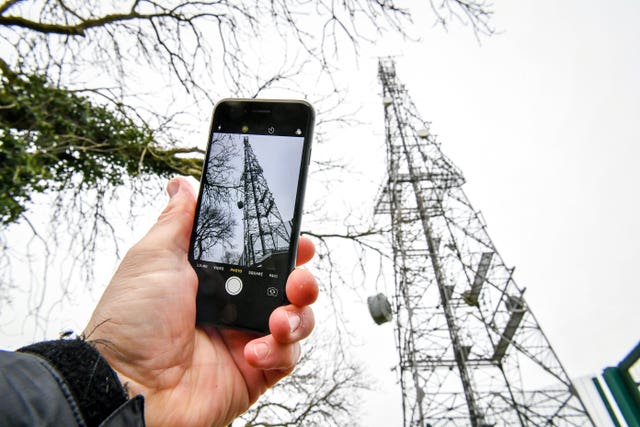
Tom Swarbrick 4pm - 7pm
8 February 2022, 23:14

Street lights and bus shelters to host more mobile network equipment to help mobile coverage in a plan to cut red tape and install more 4G and 5G kit
Street lights, bus shelters and traffic lights will host more mobile network equipment to help boost coverage, it has been announced.
The Department for Digital, Culture, Media and Sport (DCMS) said that eight projects in England and Scotland will be part of a new scheme seeking to help local authorities cut red tape as telecoms operators look to install more 4G and 5G kit.
They will share from the £4 million Digital Connectivity Infrastructure Accelerator (DCIA) which is looking at how digital software can help simplify the actions local authorities need to take when telecoms operators ask for access to publicly-owned buildings and curbside infrastructure.

Amid a surging demand for connectivity, items such as road signs and CCTV poles can be used to improve 4G coverage – but they are also key to the rollout of 5G, which demands a larger number of smaller “cell sites”.
These sites involve antennas and other telecoms equipment being placed to form a network.
Telecoms firms have found the necessary checks for information such as location, physical dimensions or access to a power source to ensure it is a good site for the network equipment have been difficult and time consuming.
Under the scheme, telecoms firms are to get easier access to public buildings and street lights, bus shelters and traffic lights in 44 English and Scottish council areas in what Digital Infrastructure minister Julia Lopez hopes will deliver “the UK the connectivity it needs by rolling out better mobile coverage as quickly as possible”.
This comes as the Government is investing in piloting the latest innovations in digital asset management platforms with software that enables local councils to more easily share data mobile companies’ need to speed up their rollout plans.

Ms Lopez said: “Currently, mobile companies are finding it difficult to get the data they need to check that a lamppost, bus shelter or public building is suitable for hosting their kit.
“These eight pilots will help solve this by modernising the way local authorities and operators work together in a way that ultimately delivers faster, more reliable mobile coverage for millions of people.”
Gareth Elliott, of Mobile UK, said: “The DCIA trial and its project winners will provide positive examples of how local authorities can use technology to speed up processes and develop effective relationships with mobile operators to improve coverage for all.”
The project aims to provide faster and more reliable mobile coverage sooner.
It could also mean there is less need for new masts which can often take longer to build and set up. If successful, the technology could be rolled out to local authorities across the UK.
Angus, Dundee, Fife, Perth and Kinross in Scotland, as well as Tyneside, Sunderland, Dudley, Wolverhampton, Somerset, Dorset and several other areas across England are among the locations that will be covered by the pilots.
The Government is also moving ahead with plans to connect up to 187,000 rural premises via Project Gigabit – a £5 billion programme to build top-of-the-range broadband infrastructure in hard-to-reach areas.
Broadband providers have been invited to submit bids for contracts worth up to £292 million to upgrade rural homes and businesses across Cumbria, Durham, Northumberland, Cambridgeshire, Dorset and Teesdale.
Initial work is expected to begin later this year.